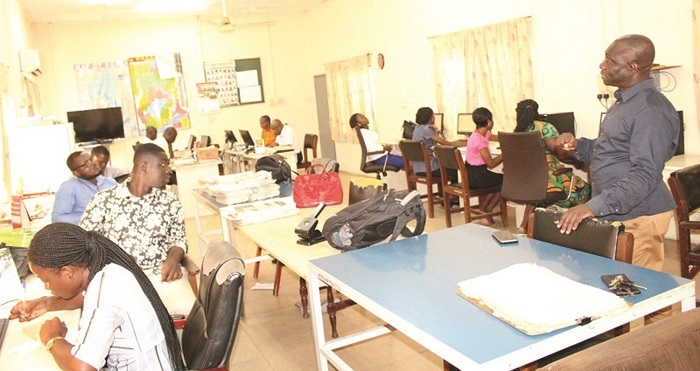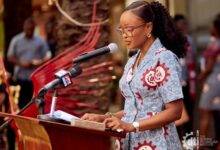
At the beginning of my journalistic career, I encountered an attitude of mind that nearly brought an early end to my journey into the world of the wordsmith.
I had arrived from a journalistic regime, operated at my first workplace, the monthly New NationMagazine that was very liberal, to the regimented newsroom of the Gold Coast Broadcasting Service (GBS).
At New Nation, one had between two and three weeks to work on a story. At GBS, however, deadlines came almost by the hour: getting bulletins ready for the vernacular sections to collect, translate and broadcast; next, work on the dreaded one o’clock news (that often announced earth-shattering government decisions); then the afternoon local language bulletins; and finally, the “opeemu ankasa”: the six o’clock news.
Another waiting “bomb” was – the nine o’clock “home news”.
You see, because the media around 1957 were relatively undevelopedGBS news assumed an importance that is difficult to define. In rural Ghana, in particular, things like radio systems were a mystery to many. One mostly went physically to the post office to make a telephone call. But with the radio, once you had a GBS-fixed box” installed, you sat in your chair and just listened.
And because many of the items came directly from the Government, AUTHORITY was streaming out from them! In fact, in the public service, if one heard one’s name mentioned positively on the radio, then one had “arrived”.
I got inserted into this established system from an atmosphere at New Nation that encouraged discussion: not only by members of the staff, but by friends who “came by” (from the social circle in which the publisher, David Smithers and the editor, Peter Barker, moved.)
There were, apart from expatriates, top Gold Coast civil servants and business people, who were active in the Christian world that had spawned New Nation.)
As I stayed in a rented room in the house of Peter Barker at OSU, in Accra, the arguments between us was often continued at dinner at home. One fellow tenant was Kwasi Afoakwa formerly of the Ashanti Timesbutthen of the Ghana News Agency.We were very disputatious, for we had heard that a good journalist must have a sense of irreverence and scepticism.
At Broadcasting, I was met with a lack of discussion which, I naively assumed, was because there was no time to engage in lengthy argumentation. But I soon found out that the “acceptance” of the “usual” or “common” was a virtue!
But alas — the notion of what was “usual” or “common” was dictated by “seniority”, not by demonstrated expertise.
Well, one day, I was left to “check” a bulletin prepared by one of the senior sub-editors. Now, he used the word “Government” without pre ceding it with the definite article, “the”. This gave the impression that “Government” was a”personality” of sorts. I couldn’t get my head round this: how could a “Government” be a “person”, except when the word was used in a legal setting? We were producing news bulletins, not court judgments (I thought). So I rashly inserted the article, “the”, before “Government”, every time I encountered the word.
Great mistake! The guy who had prepared the bulletin came to take a last look at it before it went on the air, and without a word to me, deleted all the “the’s” I had inserted before “Government” in the bulletin! What to do? I was new; I was young; and the guy was my senior. If I took the matter up with people who were senior to both of us, it might be misconstrued as “insubordination”.
So after checking from a report from the House of Commons in London and discovering that “Government” was always preceded by “the”, I kept my peace and never, in fact, edited any item written by a senior colleague, ever again.
I was sailing along thus, (like an “obedient civil servant”) when one day; I was left insole charge of the news. And instead of the “usual” phrases that littered most bulletins, I used what I thought were new words and expressions. For instance, instead of saying that the villagers of such-and-such a place had “embarked” on a “community project”, I specified (where the information was available) that the villagers had “started work on building [not “constructing”] a three-classroom block” that would turn their school into a full primary school.
And, instead of saying “The Minister assured the people that” blah blah blah, I wrote that “The Minister said he would see to it that”… Etc.
Well, I turned up for work the next day to find that a strongly-worded “query” had been put on my desk! It had also been put on my “Personal File”. The author was the second most senior person in the newsroom.
He accused me of using “clichés” and “outmoded expressions” in the bulletin!
What? Just what I’d thought I was avoiding?
In answer, I wrote a robust defence of what I had done. I had tried to avoid using the very expressions he had complained of in his “query”, Iexplained. I gave examples of the original reports and what I had changed them into.
However, this inflamed the senior man the more and he sent me a terse reply: “Young man, haven’t you learned that in a newsroom, you don’t answer back?”
I knew I could not accept this and so went straight to the Director-General, Mr James Millar, who had employed me, and told him I wanted to resign! He calmed me down, and great diplomat that he was, he explained to my senior that he thought I had only sought to make the bulletin different and less “boring”. The “query” was subsequently withdrawn.
But the incident taught me one lesson: do not attempt to “correct” one’s seniors and the systems they have created, if one isonly a relatively junior employee.
One spectacular disaster that I saw in the media years later, and which, no doubt resulted from the well-known Ghanaian attitude that makes people afraid to tell their boss that something is wrong, occurred at the EveningNews, the famous party organ of Dr Kwame Nkrumah’s CPP, but, at the time I’m writing about, a shadow of itself.
On its front page, where there was usually sycophantic praise for the Osagyefo the President, appeared the headline, “THE IMMORAL KWAME NKRUMAH!”
This headline had been meant to read “The IMMORTAL Kwame Nkrumah” But the “T” had been accidentally omitted!
The error wasn’t detected because ONLY THE EDITOR COULD CHANGE ANYTHING ON AN ESOTERIC SECTION OF THE FRONT PAGE! This section was usually reserved for anear-mystical chat between the Editor and someone he never named but addressed only as “His High Dedication.”
The proof readers had long stopped pointing out things they thought were wrong with that section, for fear of arousing the Editor’s anger.
It is said that in the medical world, a doctor usually “buries” his mistakes.
Well, in the media world, on the other hand, one cannot help but DISSEMINATE one’s mistakes!
Hence the need for those who have power in the media to sometimes “Stop, Look and – LISTEN”!
BY CAMERON DUODU





